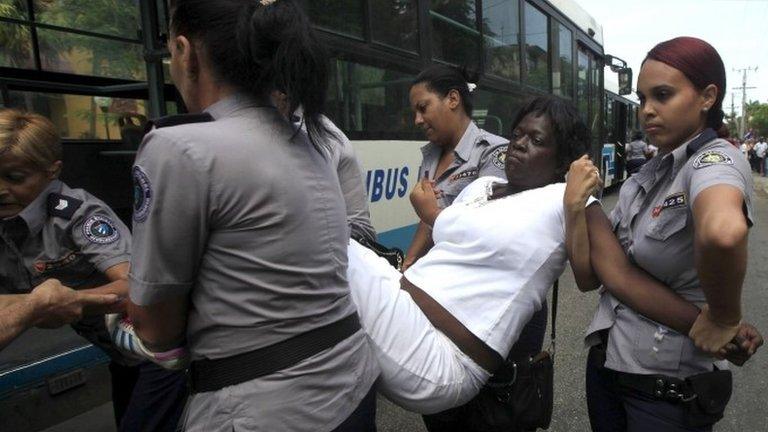Missionary of Mercy: Cuba prepares for Pope Francis visit
- Published
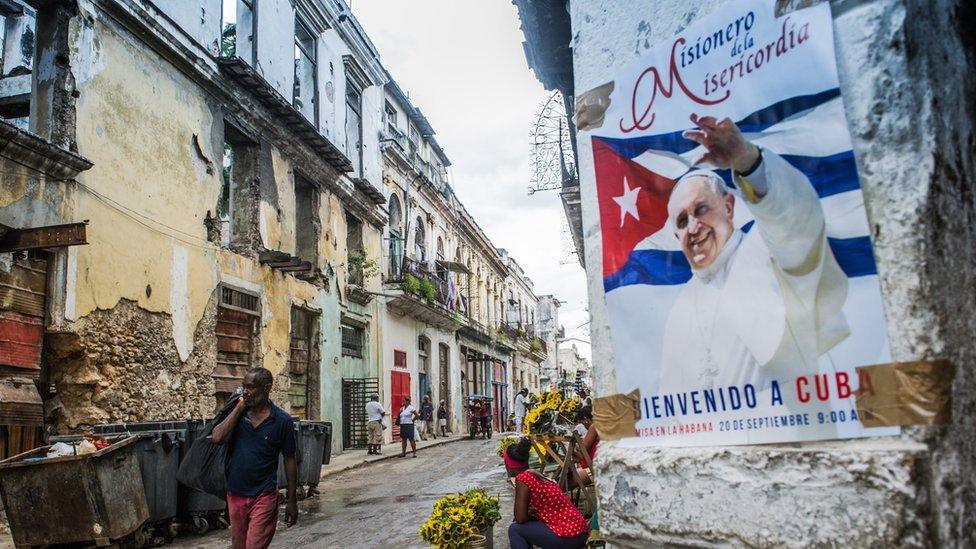
Paraphernalia for Pope Francis' trip to Cuba describes him as a "missionary of mercy"
In what will be the third papal visit to Cuba in less than two decades, Pope Francis is set to be in Cuba from 19 to 22 September. Will Grant spoke to Cubans about his forthcoming visit and how the island has changed over the years.
Mercedes Hernandez doesn't remember her university days with much affection.
"I suffered at that time," the retired accountant tells me after Sunday Mass in the small Parish of San Agustin in Havana. Openly Catholic in Fidel Castro's Cuba, she says she could never get out from under a cloud of suspicion.
"I'd often be called in by the authorities. Any time that anything happened against the government, as Catholics we were suspected of being involved. Even though I've never participated in any anti-government acts in my life."
Things started to become so stressful, Mercedes says, she eventually dropped out of university. Talking about it years later, it still brings a lump to her throat.
But as the conversation turns towards today's Cuba, she brightens immediately.
Religious tolerance on the communist-run island is now incomparable to that of Mercedes' youth and she is heartened by the experience of her Christian grandchildren.
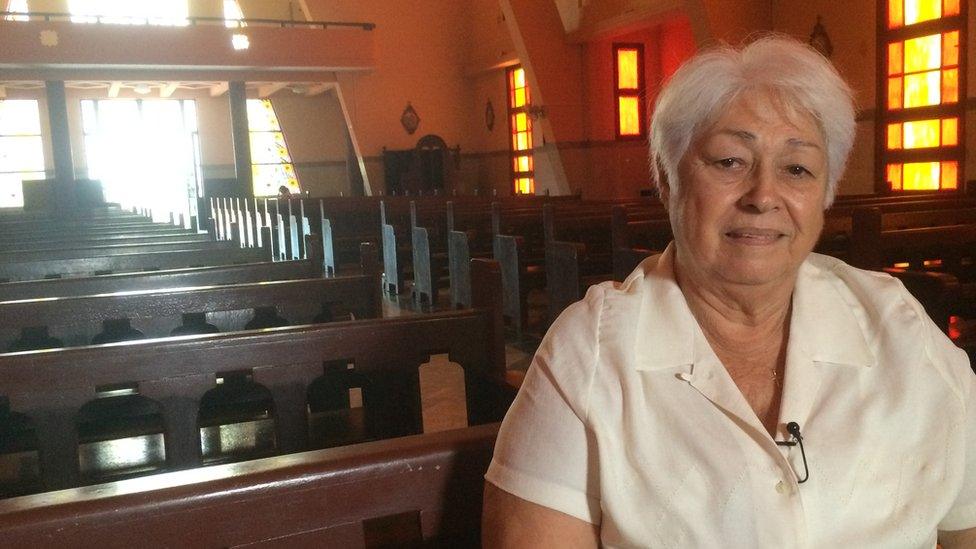
Mercedes Hernandez in the Parish of San Agustin in Havana
"I sense real change in the young people, particularly those in this parish", she says.
"They are transmitting God's love in their places of work and study. A lot of youth in Cuba have embraced the Lord and I think Pope Francis is going to give them the little lift they need."
Among them is Eliani Diaz, a 19-year-old medical student. She's one of a handful of young Catholics who've been invited to greet the pontiff at the airport.
All the Church's literature and paraphernalia for Pope Francis' trip describes him as a "missionary of mercy" and mercy is likely to be the central tenet of his homily in Revolution Square on Sunday. The government recently released 3,522 prisoners in a goodwill gesture intended to coincide with the pope's theme.
But for Eliani the key word in the papal message is "dialogue".
"It's our mission - the mission of Cuba's youth - to build a better society. The Pope constantly reminds us that we must create a greater dialogue, that's important. Both as Cubans and inside the church itself, as Christians."
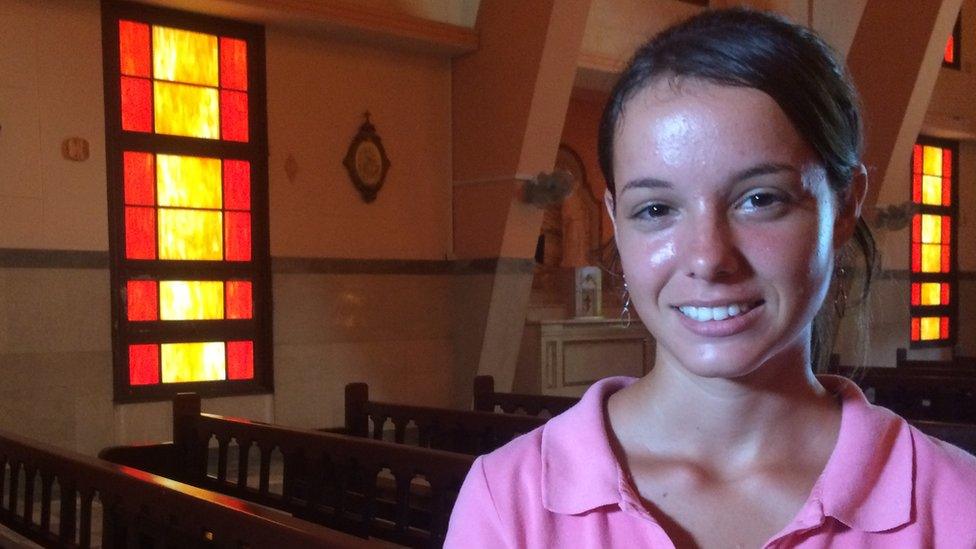
Eliani Diaz says the Pope has inspired Cuba's youth to create a greater dialogue.
Reading between the lines, that appears to refer to the most diplomatically sensitive part of the papal visit - openly talking of human rights and democracy in front of the huge crowds and live on state TV.
The auxiliary bishop of Havana, Juan de Dios Hernandez, says that Pope Francis will be free to speak as he wishes, as he has already done much to sway favour with his hosts.
"Sometimes I compare Pope Francis to the fall of the Berlin Wall. We never could have imagined that suddenly one day that wall would become a bridge."
"Well, from my point of view, on 17 December, Pope Francis did the same thing: he became a bridge between President Obama and Raul Castro."
The bishop is referring, of course, to the Vatican's role in brokering the recent US-Cuba thaw. Pope Francis was personally crucial in bringing Havana and Washington to the negotiating table.
Dissident groups are certainly hopeful that the Pope will go further than the US Secretary of State, John Kerry, did on his historic visit to Cuba last month. Bishop Juan de Dios says Pope Francis is arguably a revolutionary in his own right and won't shy away from tackling the difficult issues during his private talks with Raul Castro.
"Clearly all human actions have a political dimension and the Pope's visit will have one too. Particularly because of His Holiness' character and his way of influencing the different spheres in which he moves with the only objective he has: to unite peoples, build bridges and break with realities that belong in the past."
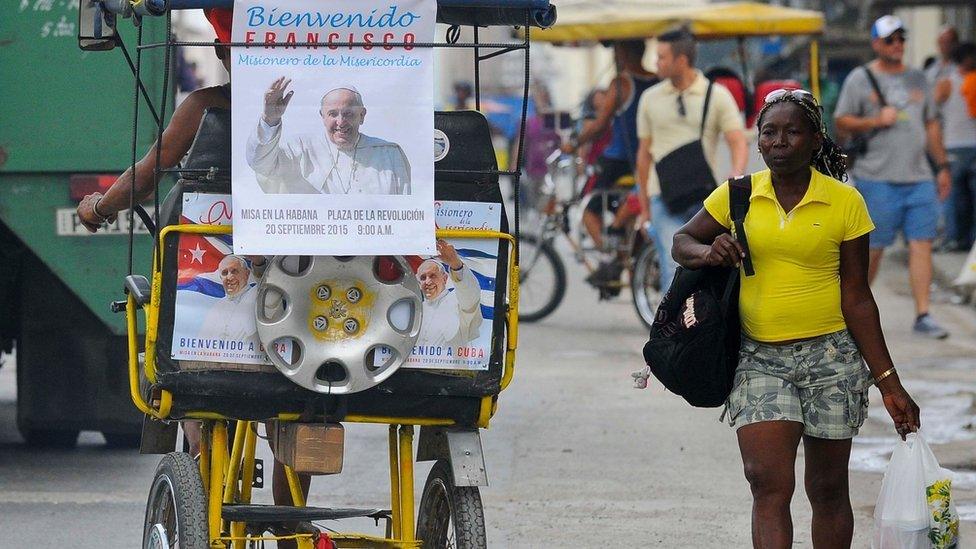
Pope Francis will offer mass in Havana, Holguin and Santiago de Cuba during his time in Cuba.
As a Latin American pontiff too, Pope Francis can expect a particularly warm welcome in Cuba, a country which prides itself on its hospitality.
This is the third papal trip that Mercedes has seen - "I never thought I'd live to see even one!" she exclaims - and compares the sense of expectation to January 1998 when Pope John Paul II became the first pontiff to visit the island.
At the time, relations between the Vatican and Havana were beginning to warm with Cuba having removed a commitment to atheism from the Constitution and reinstated Christmas as a public holiday.
With then-president Fidel Castro watching on, Pope John Paul urged further reform: "Cuba must open herself to the world and the world must draw close to Cuba and its people" he said to rapturous applause.
Today, that process of bringing Cuba out of its isolation is well under way.
Sanctions have been eased in a host of areas including foreign travel and private ownership, diplomatic ties with its Cold War enemy, the United States, have been re-established and embassies reopened in their respective capitals.
Though his tactics differ to those of his openly anti-communist predecessor, Pope Francis may already see in Cuba much of John Paul II's call for reform.
- Published28 October 2022
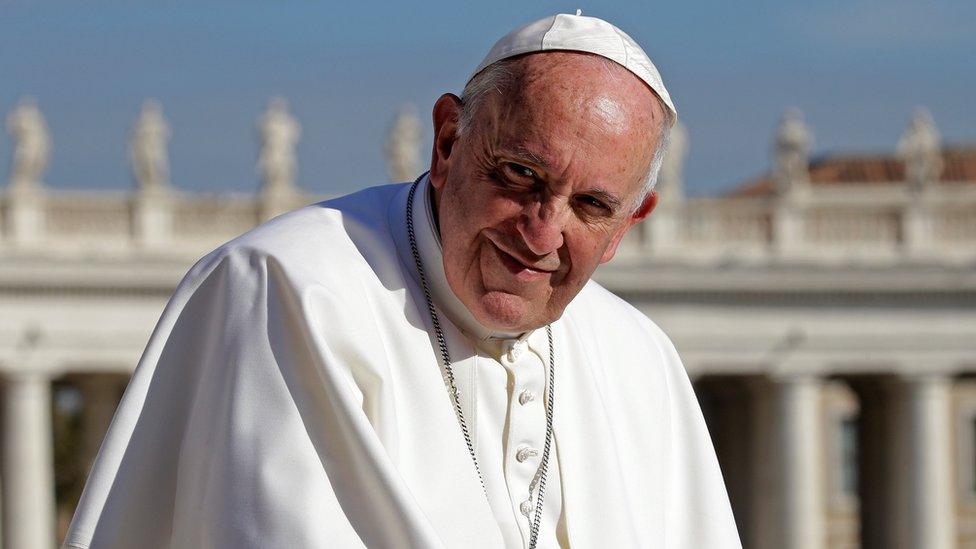
- Published11 September 2015
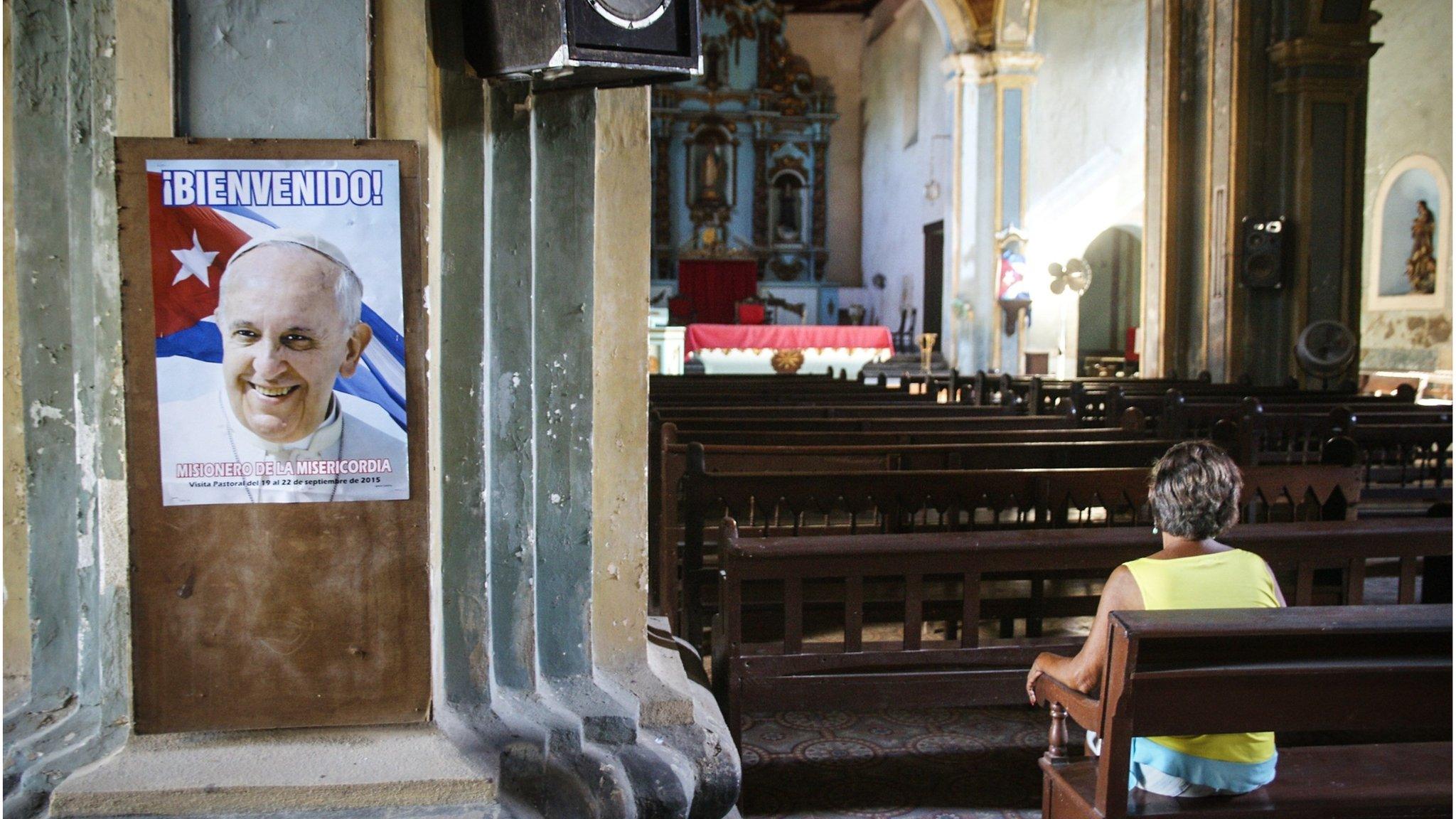
- Published14 September 2015
